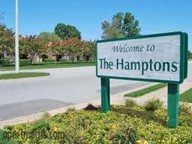From the 1930’s through the 1980’s, college students up and down the eastern seaboard would take spring break by heading to Fort Lauderdale, Florida.
It all began in the 1930’s when Colgate University’s men’s swimming team went to practice there. It further became popular in the 1960’s after the film, “Where’s the Boy Are.” The film focused on women who went to Fort Lauderdale on spring break looking to meet young men. The theme song of the movie with the same name, which became a huge radio hit, gave more popularity to Fort Lauderdale as well. The town was eventually dubbed, “Fort Liquordale.”

However, in the mid-1980’s, the entire area would quickly and dramatically change forever.
In 1985 MTV began to broadcast spring break on their network and it fueled a crowd of 380,000; one of the largest crowds that Fort Lauderdale ever had. A whopping $110 million were spent by the revelers. While many business people, including restaurants and especially night clubs profited from these crowds, other businesses and local residents began to complain to local leaders about the widespread damage done by vacationers. City fathers had to deal with major security concerns, traffic and noise.
Local leaders began to pass very strict laws. Open alcohol containers were banned, as well as sleeping in cars and parking overnight at the beach. The main hub, A1A was rerouted to prevent people from cruising down the strip. That same year, the National Minimum Drinking Age Act age of 21 was enacted.
The college crowd moved the partying up north to Daytona Beach. MTV moved there as well. At the height of its spring break heyday, the crowd totaled to approximately 200k annually. However, Daytona officials began to adopt similar laws as Fort Lauderdale and eventually chased the spring breakers out of town as well.
These days, many students are heading to Cancun, Acapulco, Cozumel. There they found the local government more willing to accept their drinking and partying. Other popular party destinations outside of the US are the Dominican Republic and the Bahamas. These destinations have a lower drinking age and the drinking laws are not aggressively enforced.
Incidentally, MTV hosted its annual Spring Break this past March in 2011 at the Palms Hotel and Casino. Las Vegas is one of the top domestic Spring Break destinations.
By the early 2000’s, the Hamptons would begin their own crackdown on nightclubs and the people who identify with that lifestyle.

The Town of Southampton had a study done on nightclubs and bars. The consultants went from one establishment to another on weekends so they could assess how each business would run on a typical night. They carefully scrutinized these businesses to see if any zoning laws were being broken, or if any laws had been broken in the past. They also talked to the establishment’s neighbors to see what they had observed and to get their overall feelings about their interactions with the establishment.
The commission found that while some businesses had posed no threat to their neighbors or to the town in general, others were prone to cause problems and that those problems needed to be addressed. The study offered different suggestions such as putting in double doors to block the sound of music when patrons leave a night spot, to moving noisy air-conditioners, to reconfiguring exit signs so they don’t shine onto neighbor’s property.
If establishments did not comply with recommendations, and if they repeatedly violated the same town codes, the town had a right to phase out these night spots over a certain period of time.
Although business people could appeal decisions regarding their establishments to the Zoning Board of Appeals, it became a futile attempt as the town would hound businesses they deemed too out of violation. Or those establishments who had gained a reputation for being too out of control.
As the Hamptons have become more of a year-round community, the complaints from residents about mostly summer hot spots continued to soar.
Aside from the businesses being targeted, party dwellers were also under the watchful eye of the town of Southampton. One tradition in the Hamptons was having a group of 10-20 people rent an entire house for the Summer. The reason why so many people would rent one house was because these houses would cost 20-75K per summer season. So young, professionals would rent these houses together.
The town passed another law aimed at controlling the amount of people who can rent one house. The new law stated that a resident could only have a number of cars on their property equal to the number of bedrooms in a house plus one additional car. So, a resident with a five-bedroom house could only have six cars on their driveway or property. Neighbors would notify police of those houses they felt were rented by a larger number of people. The police would monitor the property for an overage of cars violation.
The town code states that you can only rent a house to people who are unrelated to each if they were five people or less. If a landlord rents a house to five or more people who are unrelated, you as the landlord could face fines up to $8000.
A law was already previously on the books stating that no car could be parked on the street from 1am till 5am. So large number of people who had traditionally rented a house for the summer, had no place to park their cars during the night during the summer season.
When the town completed its study, it actually named a few night clubs that they felt were not compatible with their surroundings. Two of those bars closed in the past few years including Turtle Bay in East Quogue. Others mentioned were both in East Quogue, The Drift Inn and Summers, which were both taken over by the town. The Drift Inn became a town camping ground, while Summers across the street became a town beach property.
CPI’s, later White House, in Hampton Bays was forced to shut-down and the property is still unused as the owners are fielding different offers from potential buyers.
Jon, the owner of The Hansom House in Southampton, decided to simply sell the building to another club owner, then dismantled the Hansom House, room by room and relocated the club to Maine.
The one person on the town board who stood in favor of the night clubs was Linda Kabot. She reminded board members that when they were in their 20’s that they probably went to these same clubs. Seven years later in 2008, Linda became the Southampton Supervisor. Ironically, in September of 2009, just two months away from possibly being elected for a second term, she was arrested after leaving a bar and charged with DWI.
Coincidence?
Even though she had been arrested for DWI two months earlier, Linda Kabot remained on the ballot for the November 2009 election for Southampton Supervisor as the incumbent. She lost the election to Anna Thorne-Holst.
In March 2011 she was found not guilty and she is now suing the village of Southampton along with the police department. Linda claims both targeted her for years for thinking outside of traditional Southampton values.
This blog is in memoriam to pre-2000’s–to the famous and sometimes, infamous night clubs, bars and eatery of the Hamptons and beyond that have since closed.
Oak Tree Inn Cruiser Club Cat Ballou Mimosa Ed’s Back Bar
Neptunes Mad Hatter Shooters Castaways Wilsons Garage
27a Laffs Tiana Bubs Tequila Flats
La Plage Summers Brennan’s Marakesh Hot Dog Beach
Spiders Web Drivers Seat Casey’s E.Q. Pub Hampton Bays Diner
Gilligans Magics Pub Artful Dodger Scarlett’s Atlantic City
Molnar’s Bay Club Post House Dune Deck Suspender’s
Burgundy’s CB’s War Zone LeMan’s The Hansom House
Nite Club Caffrey House Doran’s CPI’s Tiderunners
Uncle Sam’s The Surf Club Foggy Goggle Uncle Sam’s
Pink Elephant, Brazil, Buckley’s Irish Pub, The Coliseum, The Bunker, Club Flying Point, The Whitehouse, Brazil, Cigar Bar, 1 Oak St., and St. James Hotel.
At least a half dozen restaurants closed including Dora’s, Johnny Chih’s, Crazy Dog, Finn McCool, and Magic’s Pub.
